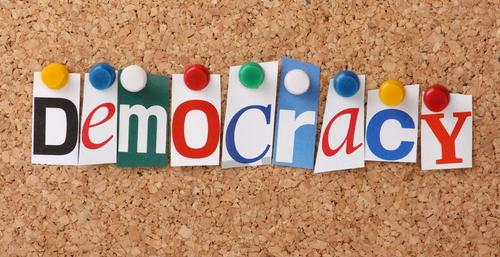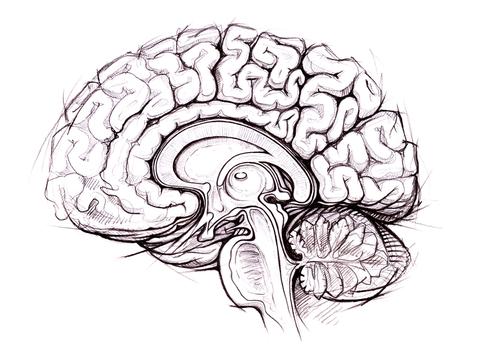Orion Jones
Managing Editor
Get smarter, faster, for success in the knowledge economy. Like us on https://t.co/6ZFWKpoKLi or visit https://t.co/d7r7dG2XOq
Mining the moon for natural resources is inevitable, says engineering professor Dr. Leonhard Bernold. He has created a system that avoids potentially crippling efficiency problems.
An engineer has released incredibly detailed technical specifications for builing a real Star Ship Entreprise which could take us to Mars in 90 days and to the Moon in just three.
We’re sorry to inform you that the space mining position you were seeking has been filled. That’s the message from Planetary Resources, who was inundated with resumes to mine space rocks.
This weekend, the company SpaceX is set to make a giant leap for the private space industry. It is scheduled to carry supplies–but no people–to the International Space Station.
A new survey of corporate professionals across Europe shows that high-growth companies were the most likely to embrace social media, as were employees who were later promoted.
The degree to which companies can yield the power of individuals’ data to explain societal behavior gives them unprecedented amounts of power. Privacy is a relatively minor concern.
A new online social network wants to bring neighborhoods together in ways that may agree with how people want to know their neighbors, i.e. semi-anonymously and at their convenience.
Despite a recent privacy snafu, the creator of the smartphone-based social network Path says he wants to create a portable Internet that provides an intimate place for private social groups.
A new education initiative brings together app developers and professional educators to use the power of tablet computers in the classrooms. New apps teach everything from spelling to Chinese script.
MIT economist Esther Duflo has documented how anti-poverty programs create an economic benefit larger than the sum of their parts. She says the margin represents the yield of hope’s seeds.
A Ukrainian feminist movement called Femen draws attention to their cause by stripping from the waist up. Is that political action or simply playing into a hyper-sexual female stereotype?
In a case of tiger parenting gone horribly awry, a chilling photo taken in a Chinese high school shows students hooked to IV protein drips while preparing for college entrance exams.
The American democracy increasingly rests in the hands of professional politicians and special interest lobbies. In the age of the citizen scientist, we need a renaissance of the citizen citizen.
Despite recent cases involving Walmart and JP Morgan, government regulation has kept business abroad relatively clean. Rather than loosen those regulations, other countries should follow suit.
The vast empire over which human reason once ruled has been made a fiefdom by current neurological research. The brain is as vulnerable to outside influence as any other organ.
A clever experiment designed by Harvard researchers suggests that we mostly imagine, and recall, positive visions of the future. Though negative forecasts occasionally help us correct our course.
New research suggests that everyone–even atheists–exhibit better self-control when they are thinking about spiritual or religious matters. But why does everyone seem to obey God?
By hosting an interdisciplinary public conversation over the relationship between neuroscience and artistic endeavors, Nobel laureate Eric Kandel seeks a fuller understanding of human behavior.
Accusations have come forward that Mitt Romney was a high-school bully, behavior consistent with his pranksterish past. But what makes some kids pick on others in the first place?
Switching between the different hours of your work and social life can cause you to put on weight, says new research. What if working hours were more accommodating to our social lives?
Since the industrialization of agriculture and the more recent trend toward genetically modified foods, we have lost an astounding 93% of the diversity in our food seeds.
A new outdoor gym in the English city of Hull encourages people to exercise by showing them a tangible return: Enough electricity to light the outdoor space and power their phones.
A new approach to cancer treatment involves extracting a patient’s bone marrow and then infecting it with a virus which carries a genetic immunity to certain chemotherapy drugs.
An expert committee has recommended that a drug trade-named Truvada be offered daily to gay men and people living with infected partners to prevent them from catching HIV.
What constitutes a job has changed but government statistics on the matter have not. A reassessment is needed to support the young people who will keep tomorrow’s economy going.
New research suggests that a misunderstanding between givers and receivers of gifts accounts for the taboo against regifting. Givers should encourage receivers to do as they wish.
The words we pay the least attention to in conversations–connectors like ‘the’, ‘this’, ‘that’, ‘and’, etc.–are highly reflective of our sexual desire and our relative place in society.
By logging hyper-specific personal information, about what booths you have visited at a trade show, for example, businesses will increasingly trade you their data for your data.
Despite America’s classless and meritocratic self-image, the divide between elite and supposedly plebeian culture is growing. What is driving the nation’s deepening divide?
Brian David Johnson is Intel’s first official futurist, helping the chip maker to imagine tomorrow and then build it. Johnson reads the sci-fi works of Vernor Vinge, Cory Doctorow and Charlie Stross.





























